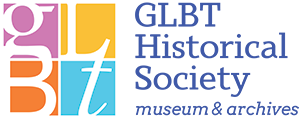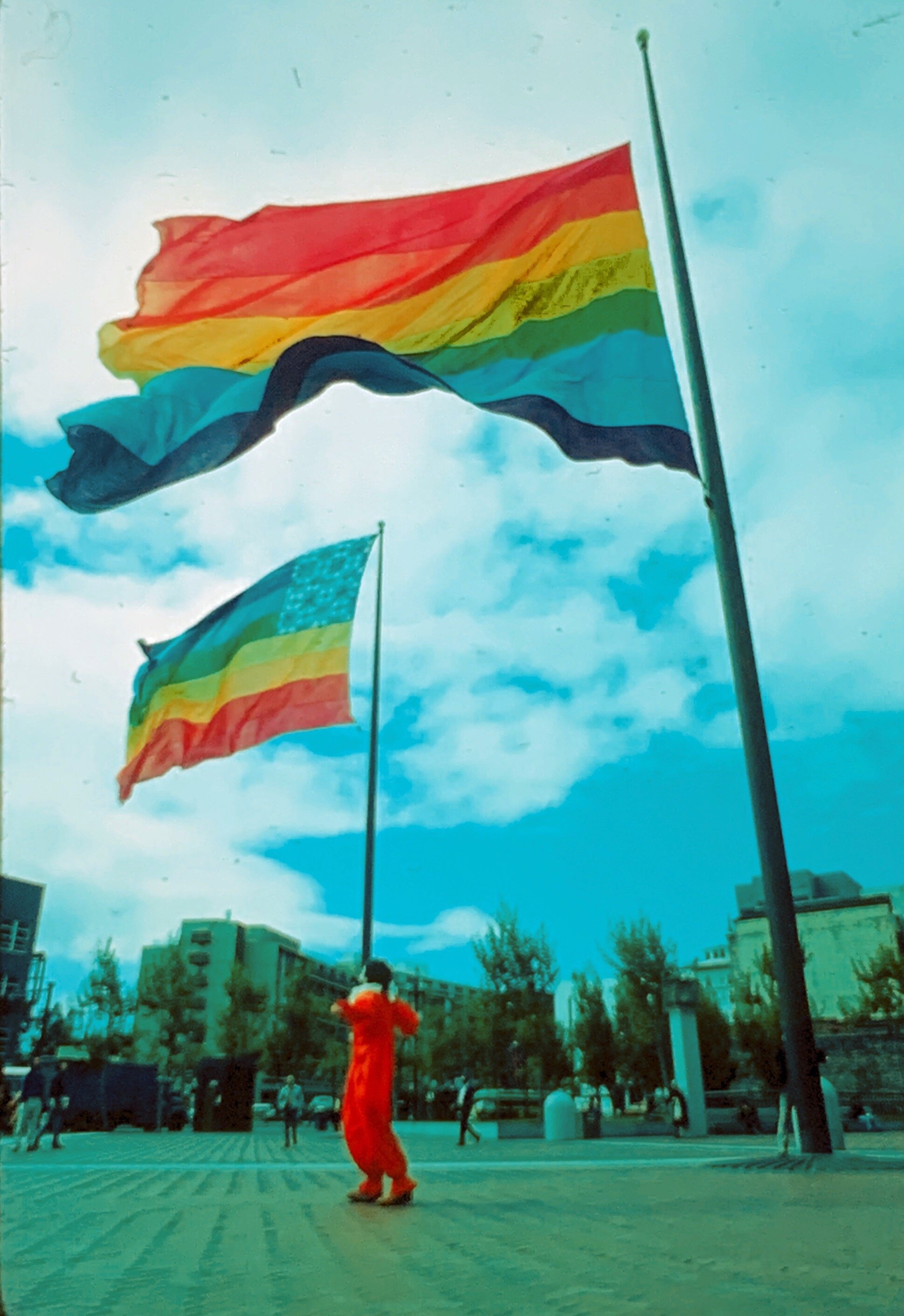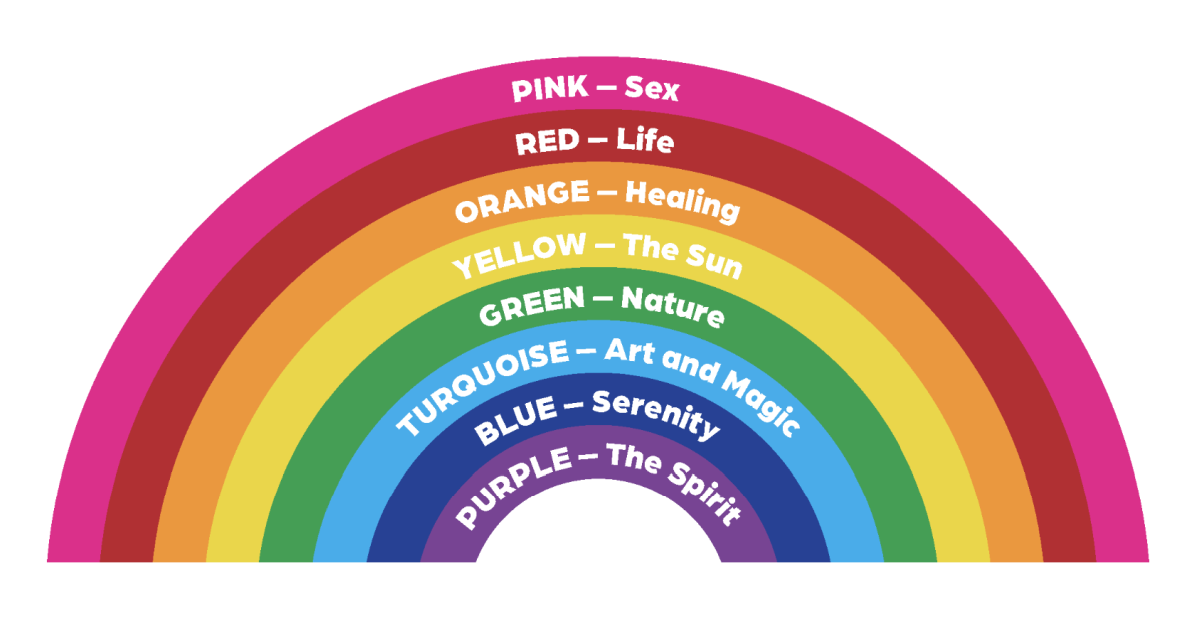The Rainbow Flag
the original 1978 flag
“I thought of flags in a new light. I discovered the depth of their power, their transcendent, transformational quality. I thought of the emotional connection they hold.”
The two original eight-color rainbow flags flying at United Nations Plaza during San Francisco Gay Freedom Day 1978. A segment of the flag in the foreground, with the pink stripe at the top, was donated to the GLBT Historical Society in April 2021. Photograph by Mark Rennie, courtesy of the Gilbert Baker Foundation.
In April 2021, the GLBT Historical Society received an archival donation of an extraordinary, unique piece of history that we are unveiling during the Pride season: a fragment of one of the two monumental rainbow flags first raised on June 25, 1978 in San Francisco’s United Nations Plaza at the San Francisco Gay Freedom Day Parade.
Displaying the original design’s eight colored stripes, it was created by Gilbert Baker and hand-stitched and dyed with the help of volunteers and friends, including Lynn Segerblom (Faerie Argyle Rainbow), James McNamara, Glenne McElhinney, Joe Duran and Paul Langlotz. Thought to have been lost for over 40 years, the fragment, shown in the banner above, was recently rediscovered and is the only known surviving remnant of the two inaugural rainbow flags.
Gilbert Baker arrived in San Francisco in 1972 during the early years of the Gay Liberation movement. He quickly became well known for his sewing skills and flamboyant creations, such as drag costumes and political banners for street demonstrations. In 1978, while preparing for that year’s Gay Freedom Day celebration, City Supervisor Harvey Milk (1930–1978) and other local activists appealed to Baker, the co-chair of the Decorations Committee, to create a new symbol for the LGBTQ community to be unveiled at the event in June.
Using color to establish meaning, Baker conceived a flag that would empower his “tribe” and a “rainbow of humanity” motif to represent the community’s diversity. He assigned symbolic meaning to each of the flag’s eight colored stripes:
“This was our new revolution: a tribal, individualistic and collective vision. It deserved a new symbol.”
Graphic courtesy of Jeff Raby/CREATIS Group
The first 30-feet-high by 60-feet-wide design subsequently underwent several revisions due to cost and display considerations. In 1979 the hot pink stripe was dropped due to the unavailability of flag fabric in this color. Baker also removed the turquoise stripe to create an even number of stripes for display on each side of the streetlamps on Market Street for the 1979 Gay Freedom Day parade. This resulted in the popularly known and still most common six-stripe variant of the flag.
This iconic symbol and its evolution have become an intrinsic part of LGBTQ identity, culture, politics and society. Gilbert Baker worked tirelessly to ensure that the rainbow flag would become a universally recognized, global emblem of the LGBTQ community and its proud legacy.
The flag segment is on display at the GLBT Historical Society Museum from June 4, 2021. Please click here for museum information and ticketing.
“For LGBTQ people, there are few artifacts that carry the historic, political and cultural significance of this seminal work of art, the original rainbow flag.”
Volunteers hoist one of the two original rainbow flags created for San Francisco Gay Freedom Day 1978. A segment cut from this flag was donated to the GLBT Historical Society in April 2021. Photograph by James McNamara, courtesy of Mick Hicks.
Additional Resources
Exhibitions
The flag is on display at the GLBT Historical Society Museum in San Francisco. For museum information and tickets, click here. To learn more about Gilbert Baker, click here.
Media Resources
For media inquiries, please email press@glbthistory.org.
Banner photo: This segment from one of the two original rainbow flags created for San Francisco Gay Freedom Day 1978 was donated to the GLBT Historical Society in April 2021; photograph by Matthew Leifheit, courtesy of the Gilbert Baker Foundation.




